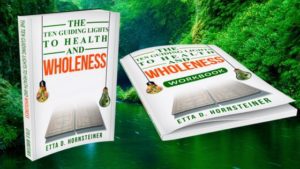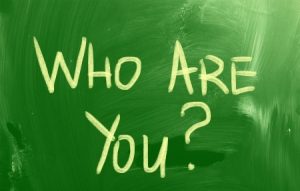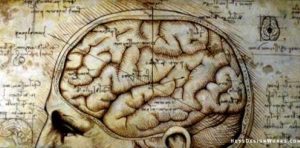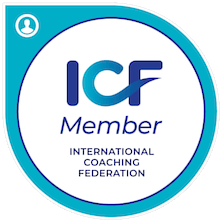May is Mental Health awareness month. Mentalhealth.gov says, “Mental health includes our emotional, psychological, and social well-being. It affects how we think, feel, and act. It also helps determine how we handle stress, relate to others, and make choices. Mental health is important at every stage of life, from childhood and adolescence through adulthood.” This is a good time, therefore, for us to take the opportunity to stop, take stock of our lives, and examine our mental and emotional health.
Unfortunately, mental health has been stigmatized. Hence, it has not been given the same attention as our physical or even spiritual health. We talk with ease about diseases, such as cancer, cardiovascular and immune disorders, but avoid or have peripheral conversations about anxiety, depression or post traumatic syndrome. Some of us are even ‘okay’ talking openly about our faith or having discussions on spirituality. But, somehow, we incredulously manage to circumvent the topic of mental health and wellness. How could that be possible? How could we love talking about weight loss, exercising, and eating healthily without addressing the condition of our minds? How can we attempt to change the body without changing the mind? We cannot change the body unless we change the mind. How can we develop our spirituality without removing our mental and emotional blocks? We cannot develop our spirituality unless we change the mind. It is the mind that has to be changed first.
Because we have separated the physical from the mental and the mental from the spiritual, we are now living in a state of disconnect. Family disintegration, busyness, addictions—from’ workholism’ to drugs, and technology all contribute to this mental fragmentation. This environment we now live in is called the “new normal.” Even though we have come to accept these dysfunctions as the “new normal,” we yearn still for wholeness and harmony in life. These changes can only come about when we make the physical-mental-spiritual connection and continue to be life learners who are capable of developing healthy interpersonal and intra-personal relationships.
Physical-Mental-Spiritual Connection
When it comes to transforming the body, I loved it as much as I have loved God. Yes, my journey from the physical to the spiritual has been deeply transformational and personal. Bodybuilding allowed me this journey, which was quite different from most athletes, I suppose. And for those outside the world of bodybuilding, this experience was quite different and even strange. In bodybuiding, I transcended myself and found the Creator or The Artist. Bodybuiding opened my mind, and my mind aided in my spiritual development. We are three-dimensional beings—body, mind and spirit. We cannot separate any part of our being. We may ignore an aspect, but this ignorance comes at a costly price later in life. Inevitably, we end up living disjointed lives, which creates disharmony, restlessness, fragmentation, self-absorption, and even illnesses. We cannot have a body sans the soul. Nor can we acknowledge the soul and ignore the body without affecting the quality and quantity of life.
When we fail to recognize a body with a soul, we live a life of illusion. A great question was asked, “What does it profit a man that he would gain the whole world and lose his soul?” Wealth, status, fame and power create false security and identity because they are not lasting in a transitory world. Permanence in this life is an illusion. But the soul is eternal; it does not die.
Neither can we acknowledge the soul and ignore the body. Though the body is temporal, it sustains us to fulfil our purpose on Earth. Keeping ourselves physically and mentally healthy is important in order to live a life free of diseases and with minimum complications as we age and use our body and soul in the service of God. Is this possible, that is, to live a life free of illnesses? Yes, I believe it is possible if we become proactive and vigilant about caring for our bodies physically and mentally.
Mental health involves becoming a life learner
Over the years, we have done well emphasizing the importance of exercising and eating healthily. But the mental is just as important as the physical. Bodybuilding expanded my thinking. It had to in order for me to achieve my goal. To live life at its maximum, we have to continue to learn—to open our minds to new ideas, to new territory. What about learning a foreign language? What about intellectually engaging in one’s faith through Bible study or enjoying symposiums on faith and science, which are hot topics these days? Over the years, the church has seemed slow to embrace innovation and science; but the gap is narrowing, for God is the Creator of science too! He is the beginning and end of it all. The brain is a living organ which continues to grow throughout our life if we nurture and stimulate it. As an educator, this growth is important in order to ward off mental diseases, such as forms of dementia, and to continue to develop healthy coping skills to deal with stress that comes as a result of living. Resistance is all around us.
Developing healthy relationships for mental health
Interpersonally
I think one of the best parts about living is developing healthy relationships. We are social creatures. We are not created to live in isolation. That’s why the family is so important to the health of society and the Body of Christ to the health of the church. Both are families and both institutions are at risk to the effects of the “busyness” which now characterizes our lives. Busyness is detrimental to the family because it separates the body and soul. We don’t have time to develop quality relationships with one another or God. I love the quote I read in one of my most recent readings from Contemplation: Intimacy in a Distant World. It says, “’I have a great life but I don’t know if I have time to show up for it.’” Most of us don’t have time to show compassion and love to those around us because we are moving through life so quickly with the aid of our digital gadgets. Most of all, we don’t have time to sit and revel in God’s love as His beloved.
Intrapersonal
As a result of busyness, we lose touch with our inner life—the core of who we truly are. In order to fully understand and appreciate who we are as both temporal and eternal beings, we have to be open to a relationship with God. In the context of this loving relationship, it is the ultimate place where we are healed mentally and emotionally of childhood and adult hurts. It is a safe place where we can acknowledge our emotions and expose the nakedness of our hearts without shame.
Somewhere along life’s journey, as we continue to travel and discover, we do meet individuals we can share our hearts with—whether they be a friend, psychiatrist, counselor, pastor, or rabbi. These are flowers in God’s garden. As they bring beauty to the world in their roles, they also show us how to transform our pain and suffering into something beautiful. In the words of Helen Keller, “The marvelous richness of human experience would lose something of rewarding joy if there were no limitations to overcome. The hilltop hour would not be half so wonderful if there were no dark valleys to traverse.” Our mental health is equally important to our physical and spiritual health. Let’s take this time to slow down and connect with our inner life, so we can enrich the lives of others.









